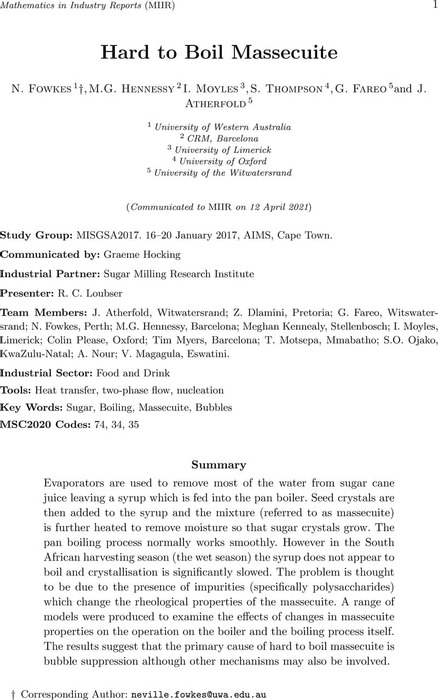Abstract
Evaporators are used to remove most of the water from sugar cane juice leaving a syrup which is fed into the pan boiler. Seed crystals are then added to the syrup and the mixture (referred to as massecuite) is further heated to remove moisture so that sugar crystals grow. The pan boiling process normally works smoothly. However, in the South African harvesting season (the wet season) the syrup does not appear to boil and crystallisation is significantly slowed. The problem is thought to be due to the presence of impurities (specifically polysaccharides) which change the rheological properties of the massecuite. A range of models were produced to examine the effects of changes in massecuite properties on the operation on the boiler and the boiling process itself. The results suggest that the primary cause of hard to boil massecuite is bubble suppression although other mechanisms may also be involved.
Content




